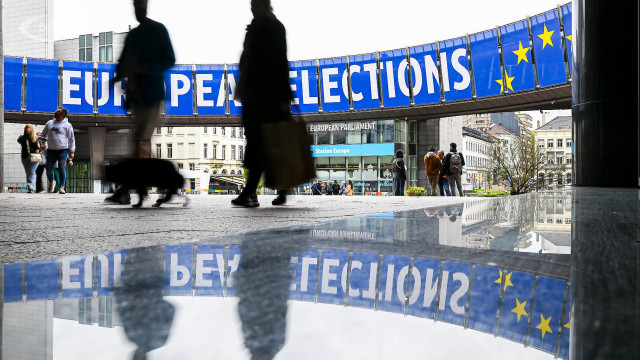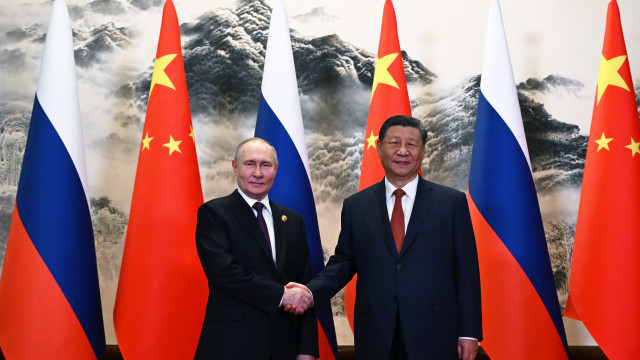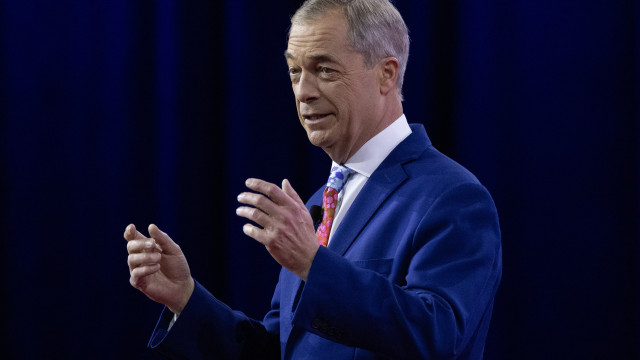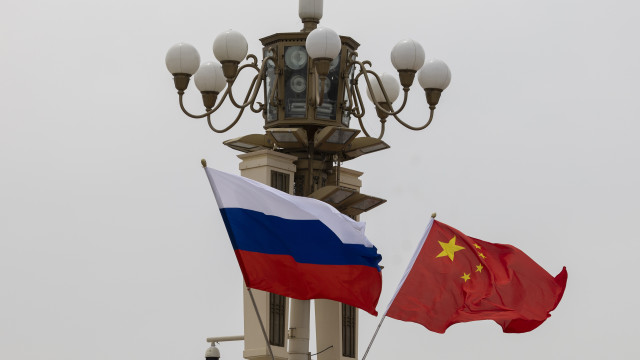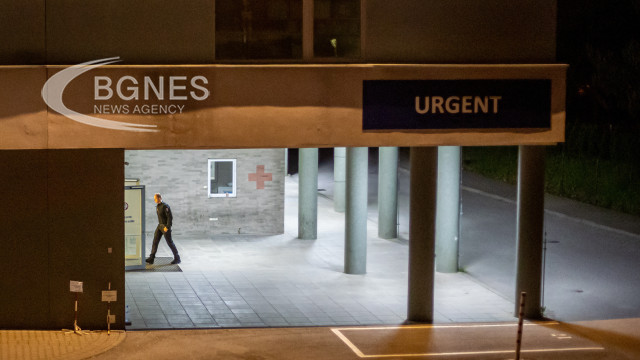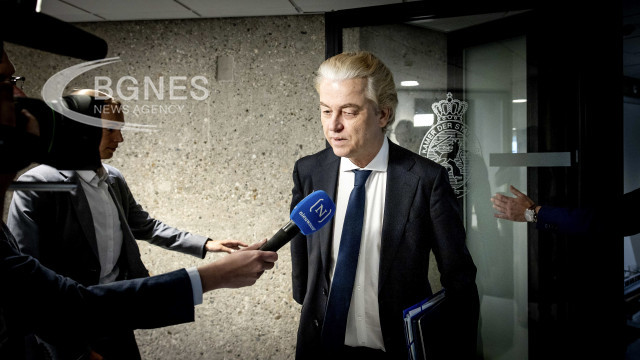Improving competitiveness (better conditions for business), reducing bureaucracy, protecting jobs and supporting the green transition are just some of the main commitments of the party groups ahead of the European Parliament elections, which will be held from 6 to 9 June. Euronews Business asks the different political groups in the European Parliament about their economic agenda for the next five years.
Turning on the continent's economic growth engine for the next five years appears to be a complex task. According to the IMF, the outlook for the coming years looks alarming: "Europe's medium-term growth prospects have been declining for some time".
The past five years have seen an unprecedented pandemic, the outbreak of war in Europe and the loss of a member of the bloc as a result of Brexit. The economy had to take one blow after another - rising energy and raw material prices hit Europe hard, productivity fell, and high inflation and tight monetary policy also took their toll, shrinking output on the continent.
EPP: More competitiveness, less bureaucracy
The centre-right European People's Party (EPP), the largest parliamentary group, has put restoring European competitiveness at the top of its economic agenda, alongside strengthening the single market.
The EPP is considering launching a "Strategy for European Competitiveness" and appointing a dedicated European Commissioner to deal solely with what SMEs need to thrive. They also outline plans to cut red tape.
The group also aims to expand the number of trade agreements, including with African partners, and complete the ongoing Mercosur negotiations. It will also develop agreements for critical raw materials that are an important ingredient in new technologies, including electric vehicles.
The EPP manifesto also lists as an economic priority the protection of critical infrastructure, such as ports, telecommunications and energy facilities, from being taken over by third countries, especially China.
EQF: Promoting the single market and small businesses
Meanwhile, the European Conservatives and Reformists (ECR) echo some of the EPP's priorities, saying that improving competitiveness will come through revitalizing industrial policy and strengthening the single market.
In its manifesto, the group also promises to support SMEs, cut red tape, bring strategic manufacturing back to Europe and support energy security, paying particular attention to nuclear and geothermal energy. They are not particularly enthusiastic about the current form of the "green deal", but they promise to prioritize the European defense and technology industry, boosting innovation and investment in cutting-edge technologies such as artificial intelligence and quantum computing.
S&D: Reducing internal market fragmentation and achieving greater fiscal integration
To improve competitiveness, the Progressive Alliance of Socialists and Democrats (S&D) also calls strengthening the single market an "essential priority" and a way to reduce external dependence on key sectors and materials.
The group considers further fiscal integration in the bloc as a priority, including the consolidation of the Banking Union and the Capital Markets Union.
"We need to create a permanent fiscal capacity, as an additional special tool above the MFF ceilings [annual limit for EU spending as a whole, note ed.], which can protect against disruptive shocks," said MEP Honas Fernandez, S&D spokesman on economic and monetary matters.
"Renew Europe": Better regulation and new technologies
The liberal, pro-European group Renew Europe, successor to the Alliance of Liberals and Democrats for Europe (ALDE), has argued that the next Commission should be an "Investment Commission" to deal with research, development and innovation, to increase the EU's global competitiveness.
It proposes that from 2027 onwards 3% of EU GDP should be spent on research and investment. (In 2022, EU R&D spending was 2.24% of GDP, according to Eurostat).
Renew Europe also stressed that SMEs need easier access to capital. In a special 10-point plan released earlier this year, the group said part of the problem could be solved by removing national barriers to capital markets.
She is also advocating for a special enforcement commissioner tasked with fully enforcing existing EU rules.
Group of the Greens/European Free Alliance: Welfare-Based Macroeconomic Governance
The Group of the Greens/European Free Alliance envisages increasing competitiveness through green investments. The group is running a "Green and Social Deal" campaign. It's a package that promises to put money from fossil fuel companies and other groups into green investment, thereby creating jobs and securing basic rights for everyone in Europe. The group's concerns are related to food, clean water, basic housing, cheap public transportation and energy.
GUE/NGL: Taxing corporate excess profits!
The Group of the Left in the European Parliament (GUE/NGL) believes that rising inequality, tax avoidance and lack of investment in public services are the three most important problems we need to tackle.
"Inequality between the rich and the poor is growing," a spokesman said, adding that changes to taxation could replace austerity measures currently planned across the bloc. "EU governments are losing a staggering €286.5 billion in revenue a year, which equates to €33 million an hour, due to their failure to tax Europe's richest fairly."
With the proceeds, the group promises to bring about the overcoming of social inequality, stimulate investment and fuel the ecological transition. They are also promoting the addition of special roles for the European Central Bank (ECB) including health and education, research and transport.
The far-right group "Identity and Democracy" did not respond to Euronews' request for comment.
Tackling rising prices and social inequality, as well as tackling unemployment, are among the most important issues for European voters ahead of June's European Parliament elections.
Inflation has been falling for several months and the European Central Bank is expected to cut key interest rates in June, a sign that the bloc is on the right track.
While some parties argue that tackling social inequalities is largely within the competence of member states, labor market challenges will surely remain on the agenda for the next European administration.
Europe is grappling with an imbalance in its labor market, with a shortage of staff in some industries and a surplus of skilled workers in others.
The EPP emphasizes the importance of protecting Europe's 100 million jobs by supporting SMEs. The group also promises to create new jobs by launching a plan to invest in research and development, spending 4% of the EU's GDP.
They promise to "continue the fight against youth unemployment" and create a funding program to significantly increase the number of female-led start-ups.
To guarantee workers' rights across the bloc, the EPP also plans to create a common European guarantee for workers in the digital market.
To address the shortage of skilled workers, Renew Europe focuses on improving the match between education and labor market requirements and aims to reform the school system. It involves companies with knowledge in the transformation process and develops specialized training programs, such as "Zero Emission Academies", to prepare job seekers for the transition to green and digital technologies.
S&D said: "We need to prepare workers to participate in the industrial transformation process we are in through the green and digital transition", adding that the so-called "Support to Reduce Unemployment Risks in Emergencies" (SURE) follows to continue to act as a crisis relief scheme.
To tackle unemployment by providing training and employment in the public sector, the left-wing group proposes to introduce a guaranteed employment plan financed by the European Stability Mechanism (ESM).
It demands better labor and social rights and, for example, shorter working hours without loss of income.
The group also advocates a European Basic Income Directive - a universal minimum income for all Europeans to cover basic needs including food, housing and energy.
Green politicians take a cautious stance on this issue, saying that a universal basic income should be explored and researched.
The group believes that solving the climate crisis will create millions of jobs in sectors from renewable energy and construction to industry and transport.
"The ready-to-implement projects we will launch tomorrow represent 2 million jobs in the short and medium term, and up to 10 million in the long term," their manifesto said. He also believes that the European Central Bank's mandate should be revised to include full employment alongside price stability.
Housing is an increasingly serious problem across the block.
"On any given night in the EU, there are 900,000 homeless people and millions struggling with rising rents in major cities," according to the Greens/ESA alliance. They promise to increase public and private investment in affordable housing, including social housing. "We support the introduction of rent control in cities and regions where rents have risen to the point where they have become unaffordable," their manifesto said.
S&D believe that "the EU can do more". The group is also advocating for increased public investment in green social housing, as well as an EU plan to provide decent and affordable housing and limit the privatization of public or social housing.
The EPP sees the way to a carbon-neutral and environmentally friendly future in the Energy Union, in which interconnections between the EU's electricity and gas networks will be developed more intensively, thereby further integrating the European electricity and gas market. She also advocates for "countries to decide on their specific energy mix".
The party is pushing for alternative fuels, saying a rapid increase in international hydrogen production is needed in the bloc.
It also claims to have established expedited permitting procedures for renewable energy projects.
As a result of the current situation, the EU still spends €1 billion a day on energy imports, which also raises questions about the bloc's competitiveness, she added.
Other political groups are also keen to support the energy transition, especially to reduce dependence on fossil fuels from third countries. However, the green transition is also strategically dependent for Europe, in the form of electric batteries and important chemicals.
According to Renew Europe, "we need to increase the use of renewable energy.
By 2030, energy use in Europe must reach at least 45% from renewable sources (42.5% is the mandatory target) and an 11.7% reduction in energy consumption".
"Renew Europe" believes that SMEs have a key role in the ecological and digital transition and need easier access to capital.
The ECR leaves it up to each country to determine its own energy mix, but "strongly advocates a technology-neutral approach that supports nuclear power and makes us a leader in geothermal energy".
The Greens want to transform Europe's energy system to rely 100% on solar, hydro, wind and geothermal energy, phasing out fossil fuels by 2040, starting with coal by 2030. "We want to encourage public ownership of renewable energy projects," they say in their manifesto. The Left also advocates public control and ownership of energy resources, encouraging municipalities to achieve their energy sovereignty.
The Green Group stresses that energy saving measures to reduce consumption are essential. Almost 40% of carbon emissions in Europe are due to energy inefficient buildings. The Greens group aims to allocate public funds for home renovations to people with the highest energy bills and lowest incomes. It outlined plans to focus on developing low-cost electric mobility and charging infrastructure. /BGNES

